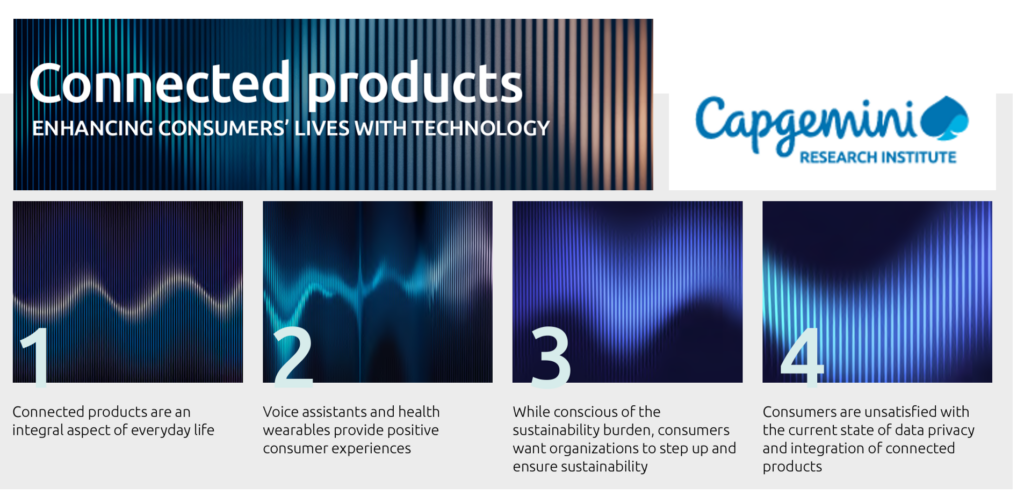Mainstreaming the Connected Life, with a Side of Trust — Insights from Capgemini at the Start of #CES2024
Even with serious concerns about personal data privacy and lack of integration, “connected products” are an integral aspect of peoples’ everyday lives. That’s the central thesis in a timely report from Capgemini Research Institute, Connected products: Enhancing consumers’ lives with technology.
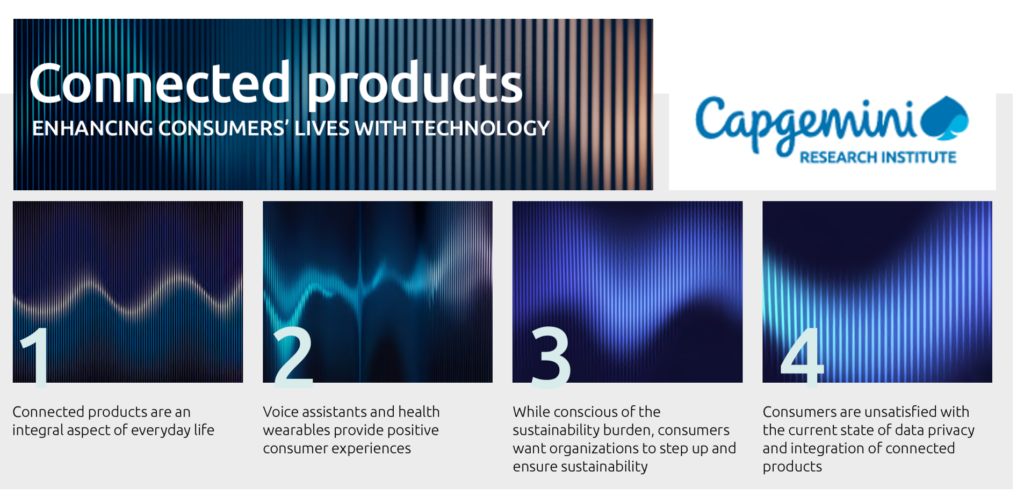
This study is well-timed as we begin a week-long exploration into the latest technology innovations being unveiled at CES 2024, the annual mega-conference hosted by the Consumer Technology Association (CTA).
For the consumer research, Capgemini’s team polled the perspectives of 10,000 consumers age 18+ in November, among people from 13 countries: Australia, Canada, France, Germany, India, Italy, Japan, the Netherlands, Norway, Spain, Sweden, the UK, and the U.S.
To get us thinking on the same page, first, what is a “connected product?” Capgemini defines this as any product that can connect to the Internet. Hint: if it has an app associated with it, it’s probably a connected product. Thus, the research assesses consumers’ use and affinity for devices beyond smartphones and tablets, further explained below.
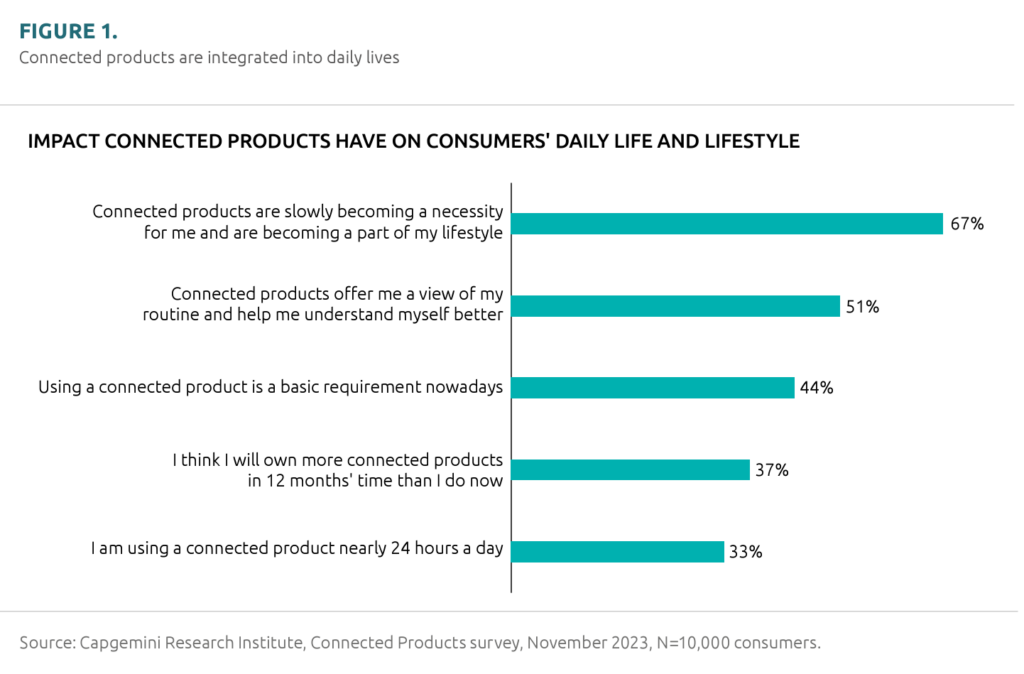
The big takeaway is the mainstreaming of connected products shown in the first bar chart: two in three consumers across the 13 countries sampled believe connected devices are becoming a necessity and part of my lifestyle. One-half of people find these products give us a view of our routines and help us better understand ourselves.
One-third of people say they use connected products nearly 24 hours a day and more think they will own even more connected products one year from now (good news for CES 2024 exhibitors!).
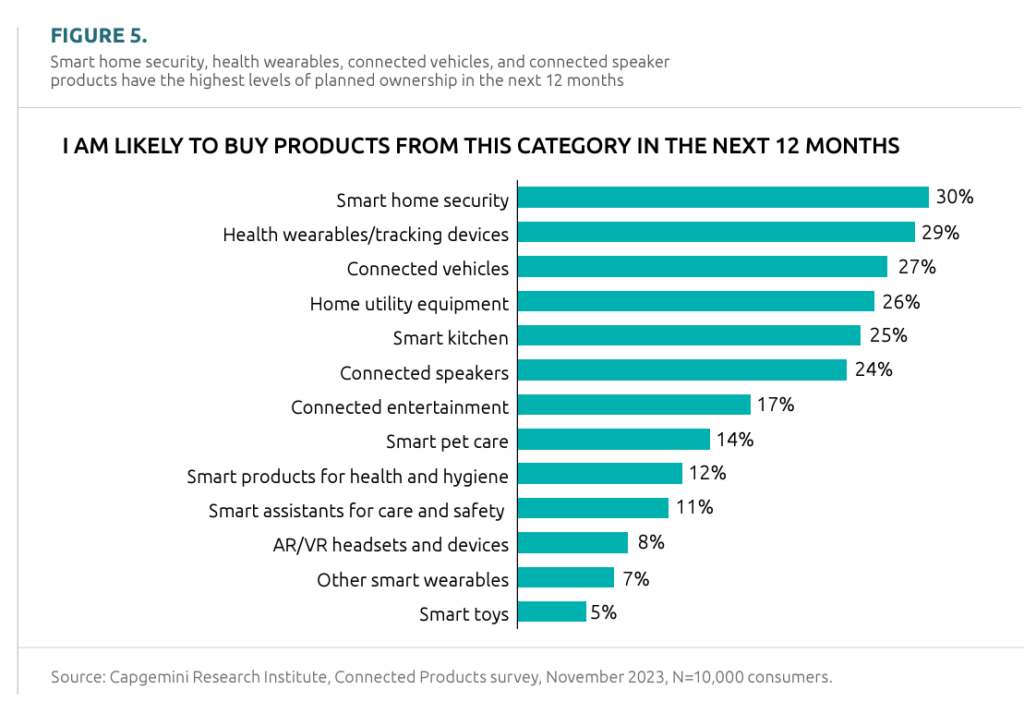
And what might those products be? Start with the smart home security category closely followed by health wearables and tracking tools, connected vehicles, home utility equipment, smart kitchen devices, and connected speakers (voice assistants, already very popular devices in connected homes).
Watch for that smart pet care category to grow, here showing 14% of global consumers likely to buy some product in the segment in the next 12 months.
The most impactful connected products have on health, safety, and time management are health wearables and trackers to help us stay healthier, as well as smart home security systems that help us feel safer.
Health Populi’s Hot Points: Looking forward….health, safety, and security are the aspects of connectivity consumers are seeking in the next twelve months….with niche categories that will grow, too, depending on peoples’ lifestyles and home situations. 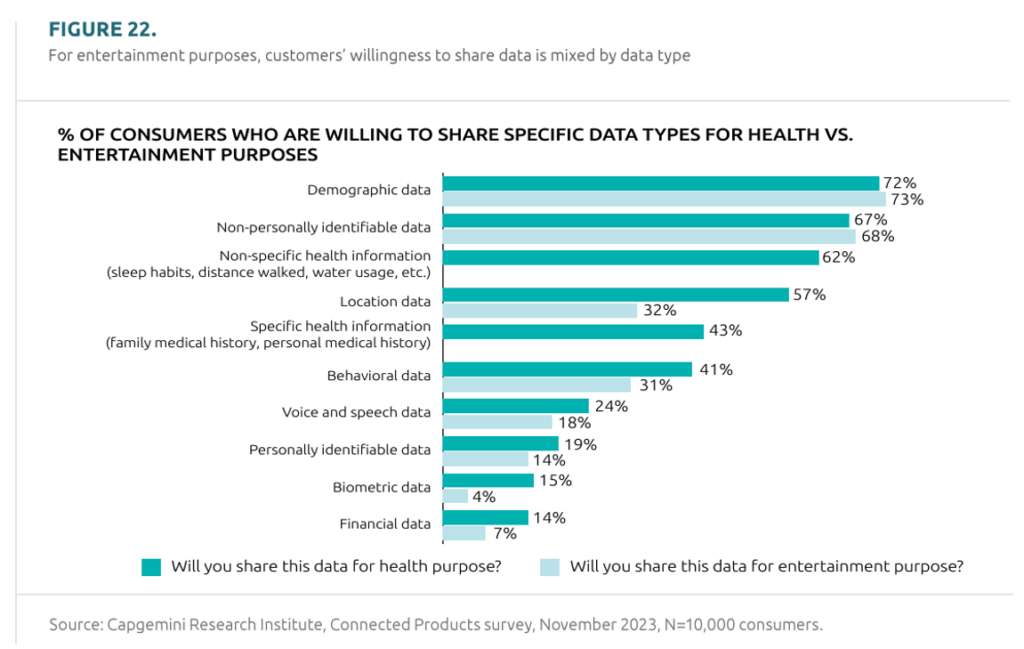
Given the nature of health, safety, and security, the connected device community must stay mindful about trust — and just how much data and what kind consumers would be willing to share for health compared with, say, entertainment.
Figure 22 from the report lays out these two questions, with important distinctions between health vs. entertainment.
General demographic data is fair game to be shared for both health and entertainment. Location data would be shared by most people for health, but not so much for entertainment. And so on…
It turns out, based on Capgemini’s survey data, that most consumers who have had positive experiences from health wearables have placed higher trust in that company serving up the device. This experience with health wearables has two key dimensions: first, the actual data privacy and security provisions, assurances, and delivery on the privacy promise; and second, the experience in setting the device up, pairing it for use (via app), and ongoing streamlined design and use of the technology delivering actionable solutions to the consumer, patient, and caregiver. Both these aspects of experience bolster trust with connected health devices — and the companies who channel and develop them.
We will keep these learnings in mind as we explore the convention floor(s) at #CES2024….thanks to Capgemini for the important and timely findings.
